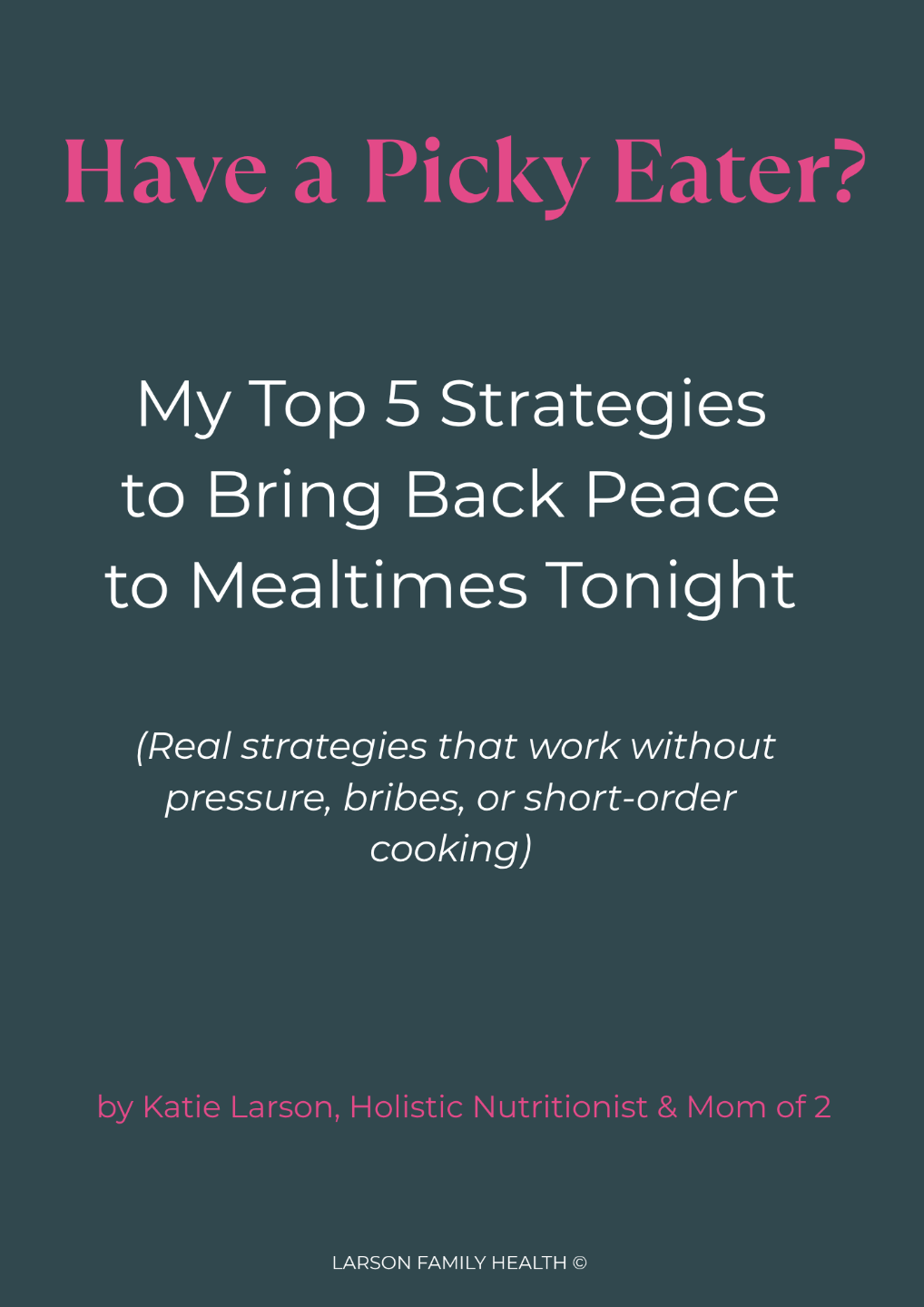
Ozempic Isn’t a Root Cause Fix: What You Need to Know About GLP-1 Drugs
Apr 13, 2025And why giving it to kids is like putting a Band-Aid on a broken bone.
Let’s just say it: Ozempic is everywhere right now. It’s in your Instagram feed. It’s in celebrity interviews. It’s probably being talked about at your kid’s soccer game by that one mom who always brings green juice and judgment.
But before we start handing out prescriptions like candy (and yes, that’s happening—even to kids now), let’s slow down and ask:
Is this actually fixing the problem? Or are we just slapping a very expensive, very trendy Band-Aid on a much deeper issue?
Wait—They’re Giving Ozempic to Kids Now?
Yep. You read that right.
In 2022, the FDA approved Wegovy (a version of semaglutide, the same drug in Ozempic) for kids as young as 12 years old who are classified as obese. The idea? Suppress appetite, induce weight loss, and boom—problem solved.
Except it’s not.
Here’s why this is a TERRIBLE idea:
1. Kids’ Bodies Are Still Developing
Hormones, brain development, metabolism—none of it is done cooking yet. Using a drug that messes with their hunger signals is like handing your teenager the car keys before they’ve passed Driver’s Ed.
2. It Teaches Them Their Body Is the Problem
When we tell a 12-year-old, “Don’t worry, this drug will make you not want to eat,” we’re also telling them, “Your hunger can’t be trusted.” That’s a fast track to disordered eating, poor body image, and lifelong confusion around food.
3. It Doesn’t Address WHY They’re Gaining Weight
Spoiler alert: kids (and adults) don’t just gain weight out of nowhere. It’s not a willpower problem. It’s often a metabolic problem—insulin resistance, inflammation, poor gut health, toxic overload, stress, poor sleep…
But drugs like Ozempic don’t address ANY of that.
So What Is Ozempic, Really?
Let’s nerd out for a second.
Ozempic is part of a class of drugs called GLP-1 agonists. They mimic a hormone that helps regulate blood sugar, slow digestion, and suppress appetite. Sounds great, right?
Well, here’s the catch:
They work—but only while you're on them.
Once you stop? Most people regain the weight. And some gain back more. Studies show up to two-thirds of the weight lost is regained within a year of stopping.
Oh, and the side effects?
- Nausea
- Vomiting
- Diarrhea
- Muscle loss
- Slowed stomach emptying (sometimes to a dangerous degree)
Yikes.
But It’s “Doctor Approved”… So It Must Be Safe?
Bless our medical system, but sometimes “standard of care” just means “fastest Band-Aid.”
What we aren’t doing enough of is asking why your body is gaining weight in the first place. Or why your energy is tanking. Or why your kid is moody, puffy, and craving sugar 24/7.
If the only tool you have is a prescription pad, everything looks like a pharmaceutical problem. But your body is smarter than that. And kids? They’re little metabolic machines that can heal fast—if we actually support them.
What’s the Root Cause (And Can We Actually Fix It)?
Let’s look at what’s actually going on beneath the surface of weight gain—whether you’re 12 or 42:
- Insulin resistance – Most people don’t realize their metabolism is broken until they’re exhausted, hangry, and bloated 24/7.
- Ultra-processed food overload – Even "healthy" foods for kids are filled with sugar and inflammatory seed oils.
- Nutrient deficiencies – Magnesium, zinc, B vitamins, etc. are crucial for regulating hunger, mood, and energy.
- Sleep + screen time dysregulation – Screentime before bed isn't just messing with melatonin; it's messing with metabolism.
- Gut health – There’s a direct gut-brain-metabolism link that we’ve barely begun to understand.
These are fixable.
And—brace yourself—you can fix them without a $1,000/month injection.
So What Do You Do Instead?
Whether it’s you or your child dealing with fatigue, weight gain, or mood swings, the answer isn’t to suppress your body’s signals.
The answer is to tune in to what your body is trying to tell you and support it with:
- Real food that stabilizes blood sugar (hello, protein + fat + fiber!)
- Movement that builds muscle and supports hormones
- Nervous system regulation (especially for kids in fight-or-flight 24/7)
- Targeted nutraceuticals (not random TikTok supplements)
- Functional testing and a personalized plan
Final Thought: You’re Not Broken. Neither Is Your Kid.
Ozempic doesn’t fix what’s actually broken—it just quiets the symptoms.
And quieting your body’s alarm system doesn’t make the fire go away.
If you (or your child) are struggling with fatigue, stubborn weight, or wild cravings, let’s stop blaming willpower—and start supporting metabolism from the inside out.
I can help you do exactly that.
👉 Learn more about how we fix the root cause here.
Rooting for you and your kid,
Katie
Become part of our newsletter community where you'll find inspiration, motivation, and helpful tips so you and your family can thrive!
We hate SPAM. We will never sell your information, for any reason.

